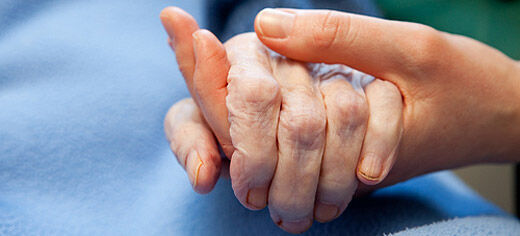
Carers could benefit from gym membership, laptops or short holidays to help keep them well when giving a high level of care to sick, frail or disabled relatives, a major study has found.
Researchers led by Professor Sue Yeandle of CIRCLE (the Centre for International Research on Care, Labour and Equalities) at the University of Leeds studied the impact and effectiveness of 25 multi-agency projects set up to explore new ways of supporting some of England's most hard-pressed carers.
6.4 million people in the UK care for sick, disabled or frail friends and relatives. CIRCLE's research has already shown that their health and financial situation often suffers because of the care they give - although it saves the public purse £119 billion a year - more than the whole budget of the NHS 1.
The team found there were new approaches which really helped some of the most isolated and unsupported carers to get useful support and guidance.
CIRCLE's latest report, New Approaches to Supporting Carers' Health and Well-being: Evidence from the National Carers' Strategy Demonstrator Sites programme 2, highlights many ideas that work in helping carers to stay well and healthy or to get a short break or a chance to meet their own needs, explaining how and why these ideas can work. The study showed, for example, that for carers struggling to make ends meet, small investments in gym memberships, laptops or short holidays could make a real difference - yet cost a fraction of what would need to be spent if their care breaks down or cannot be sustained.
Other worthwhile innovations included special health and well-being checks to pick up carers' physical or mental health problems - spotting many conditions, including diabetes, depression and cancer, which would otherwise be left undiagnosed, as carers often put their own needs second to those of others.
Another key finding was that when GPs or hospitals work together with social services and voluntary agencies in their area, support for carers can really improve - yet the better support carers receive through these integrated partnerships costs comparatively little.
Welcoming the report, the Minister of State for Care Services, Paul Burstow, said: "This report shows the many ways that staff in the NHS and in local authorities can work together with voluntary and community organisations to help carers maintain their own health and well-being.
The innovative work carried out in the 25 Demonstrator Sites across England has brought carers together with local community organisations in NHS or local authority led partnerships. It provides every GP practice and local authority in England with examples of efficient and effective ways of identifying, recognising, valuing and supporting carers in their local area."
Professor Yeandle said: "This is about recognising the value of carers to society and their need for support. In tough economic times, some ask if these personalised kinds of support are affordable - but time and again it's been shown that modest investments in simple solutions that meet a carer's needs have the potential to sustain them and their care.
"Not all carers will need help to pay for breaks and support, but for some these measures are life-changing and getting this help really makes the difference between feeling isolated and alone and valued and supported.
"Carers give up a lot to care for others, and the measures tested in these projects show that simple but imaginative support is often what is needed."
"We hope this research will persuade Government, health authorities and social services to recognise that proportionate and relatively low- cost solutions exist which can massively improve the lives of carers," says Professor Yeandle.
The report will be delivered at a special conference hosted by the University of Leeds at the Park Plaza Hotel in Leeds on Wednesday 16th November, at which delegates will also participate in the Department of Health's engagement process on The Future of Care and Support.
For further information:
Please contact the University of Leeds Press Office on +44 (0)113 343 4031 or email pressoffice@leeds.ac.uk